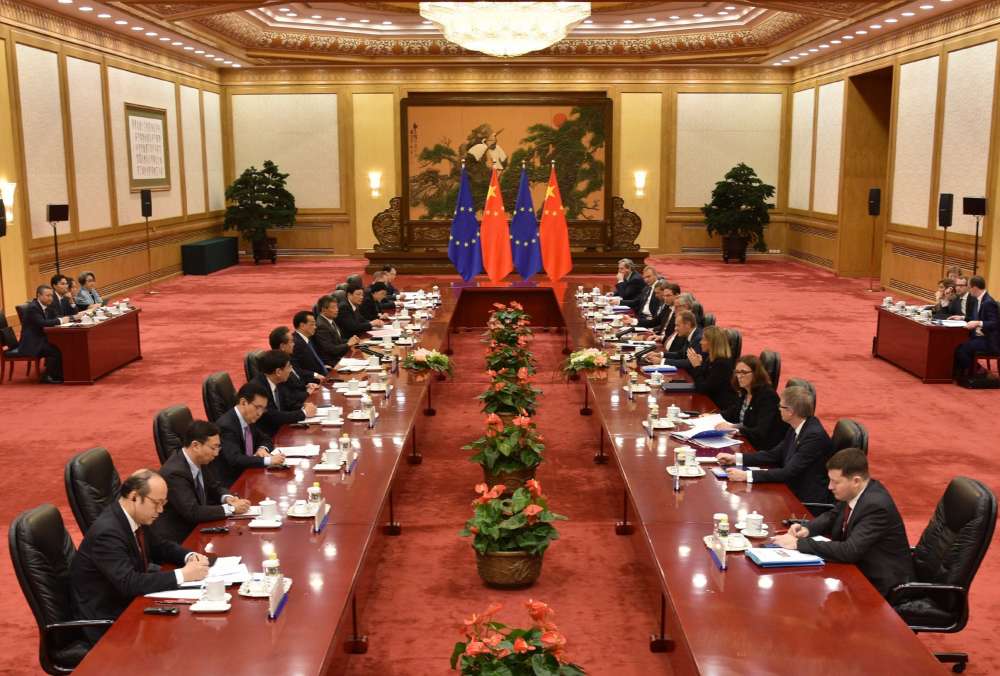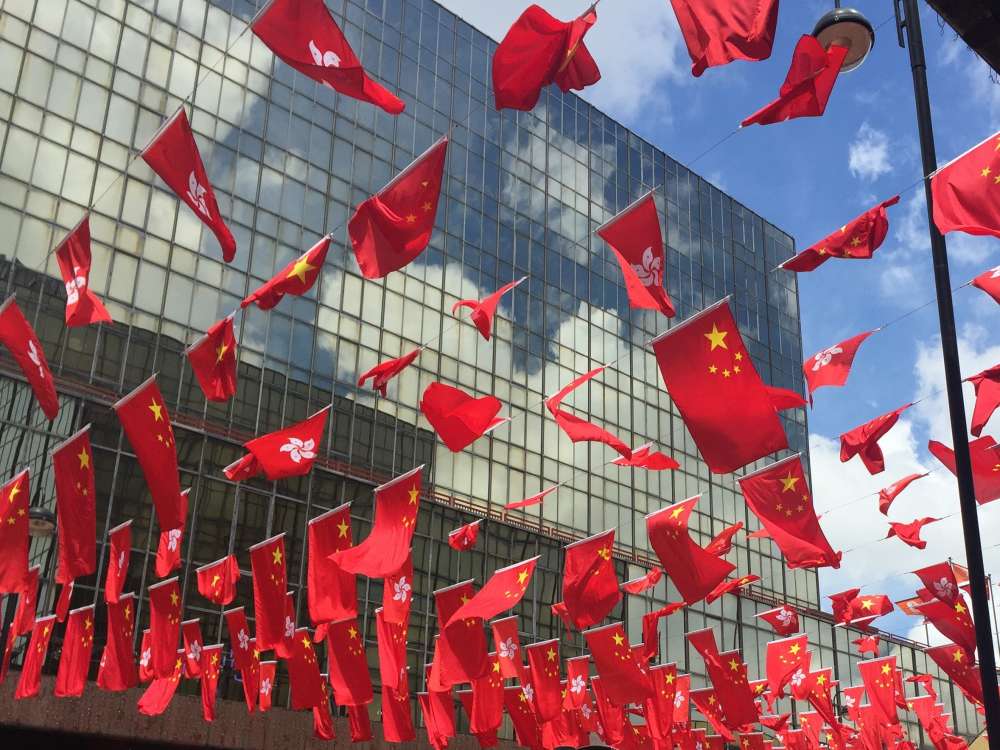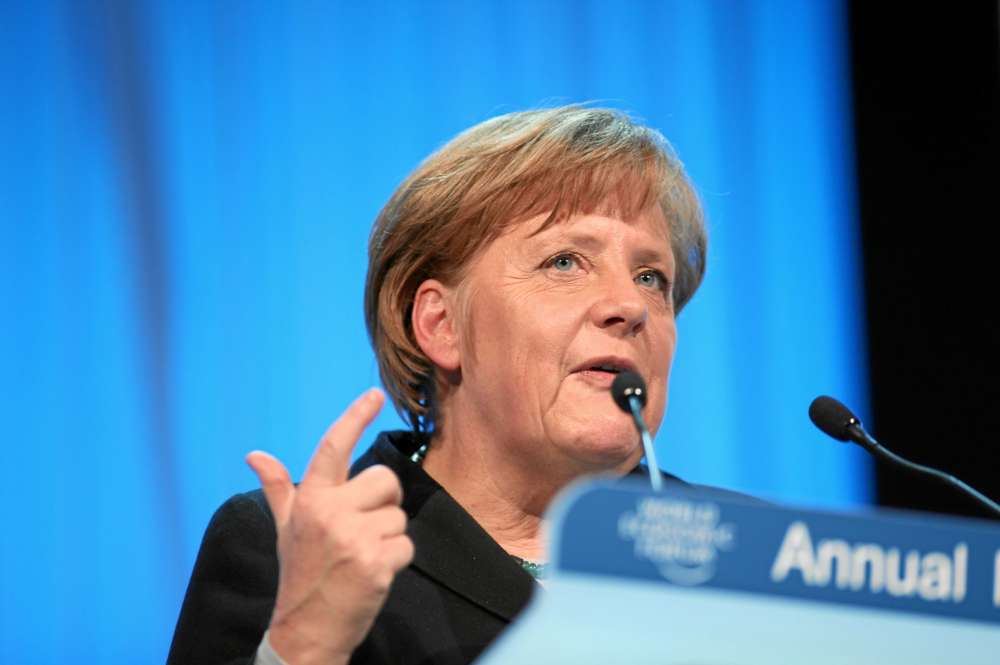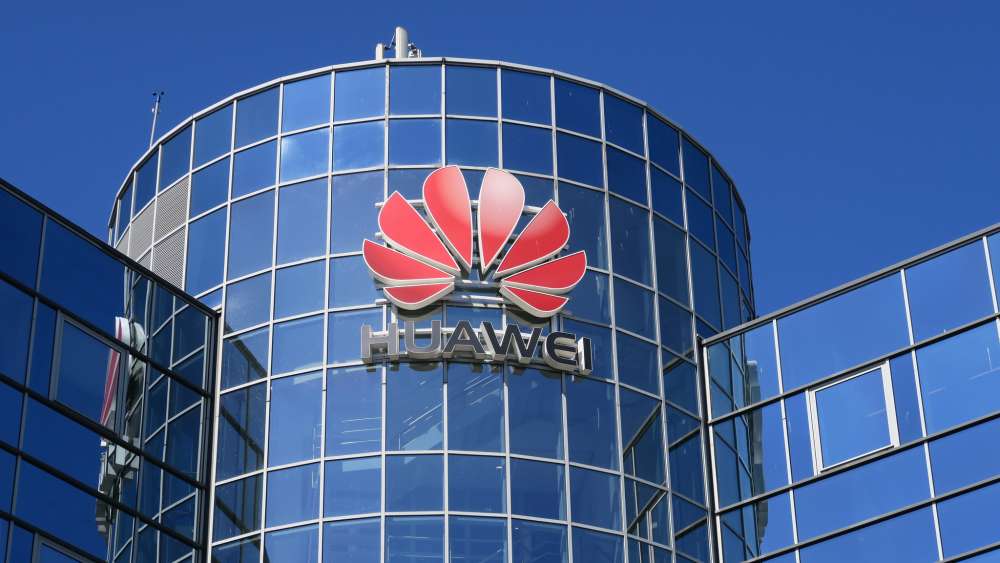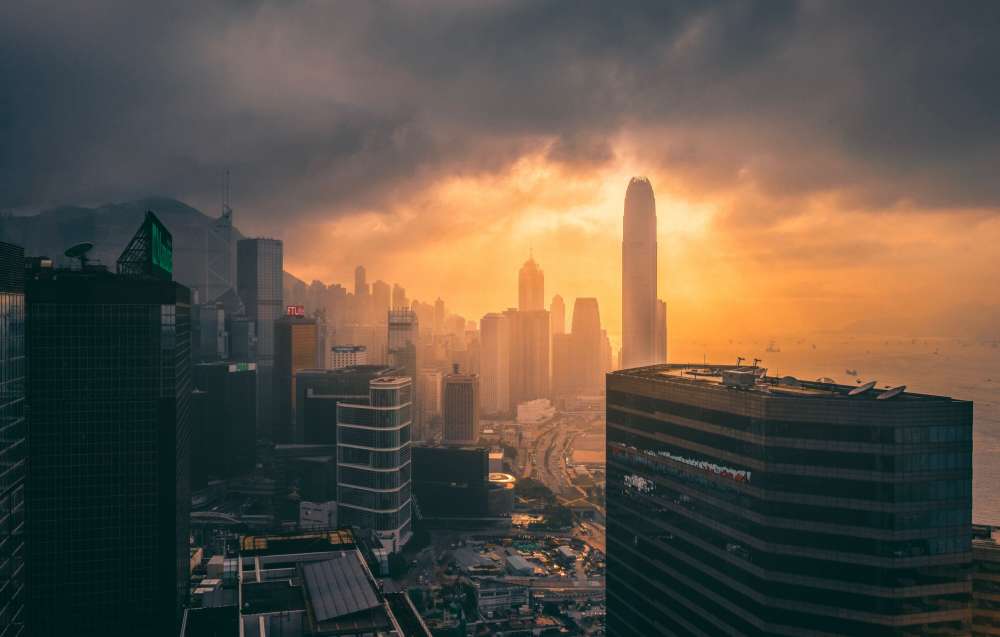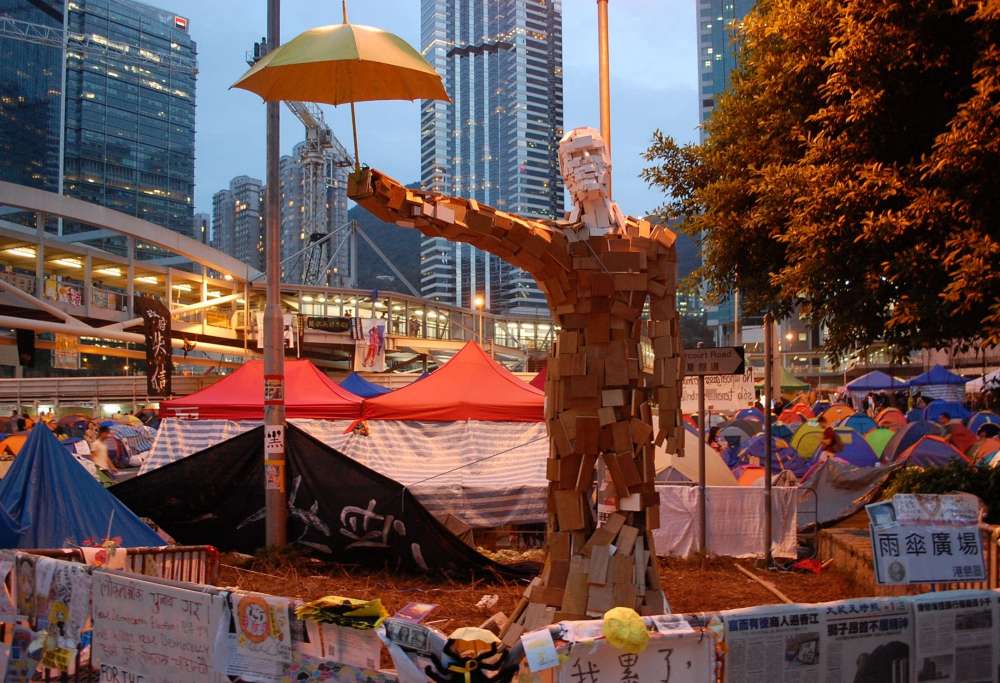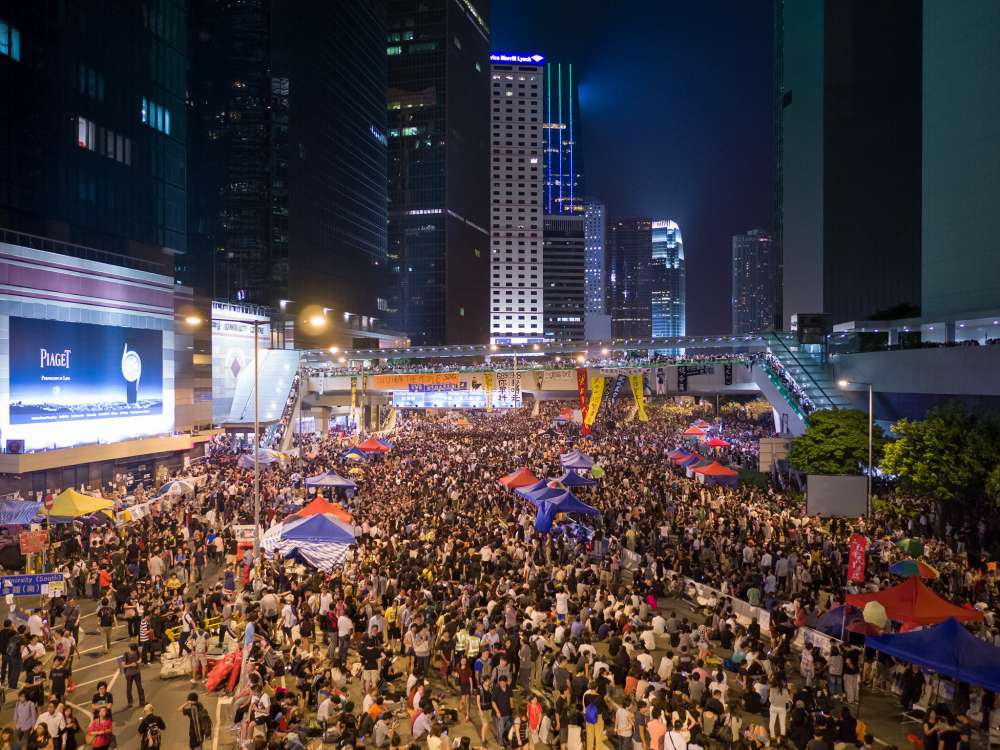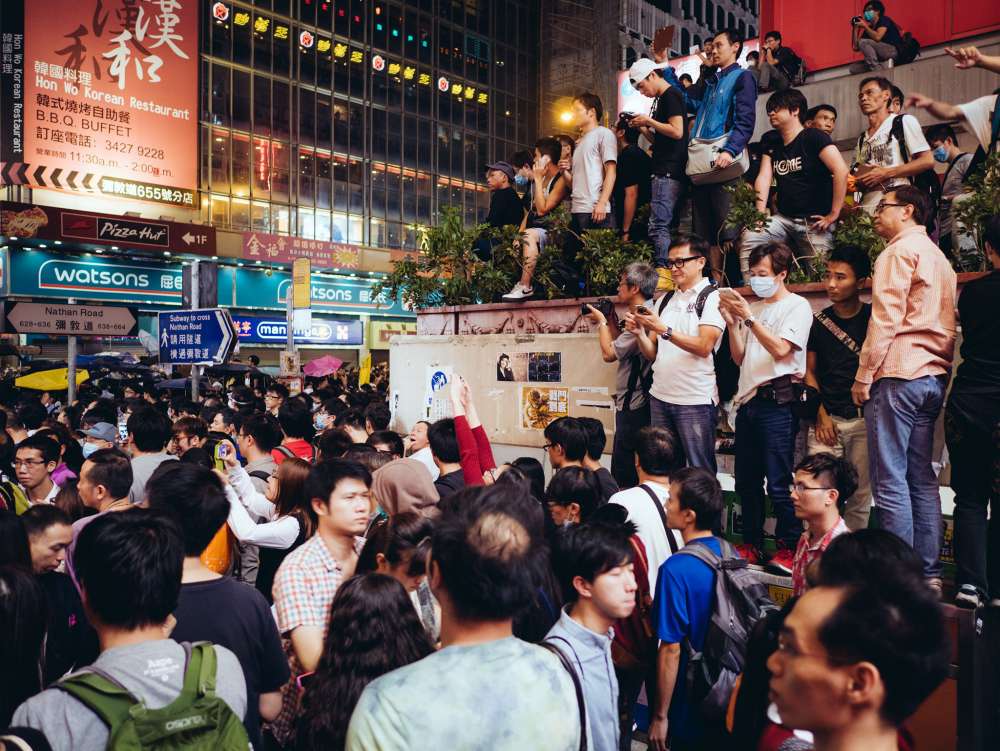What’s at Stake Amid Hong Kong’s Extradition Protests?
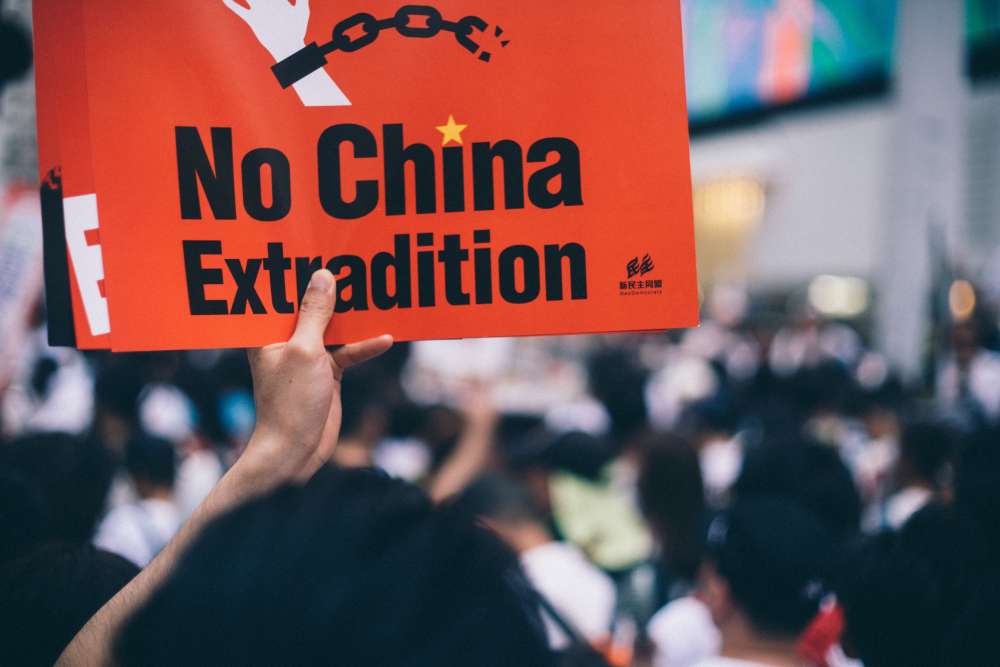
Tens of thousands of people in Hong Kong have marched through the city’s financial district to protest a controversial extradition bill. Joel Sandhu explains what is at stake for Hong Kong and what the events say about the Chinese government’s commitment to uphold international agreements.
What is behind the recent mass protests in Hong Kong?
Joel Sandhu: The protests in Hong Kong are a response to a controversial bill that, if passed into law, would allow extradition to mainland China. Critics of the law warn that local citizens, business people and even tourists could in theory be extradited because of it. The Hong Kong government says that there are certain safeguards in the bill to prevent such a scenario. It has pointed out that extradition would only apply to people accused of committing serious and criminal offenses, and that a judge will have to approve each decision. However, the reality is that even judges have spoken out against the bill because they fear that it will affect their independence.
How significant is the extradition bill and what does it represent?
Joel Sandhu: This bill is the most significant challenge to Hong Kong’s autonomy and the rule of law in the territory since it was returned from Britain to China in 1997. The bill blatantly goes against the promise that Hong Kong’s local autonomy will be preserved under the ‘one country, two systems’ principle formulated by Deng Xiaoping in the early 1980s, which grants the people of Hong Kong rights that Chinese citizens on the mainland do not enjoy. That includes freedom of speech and an independent judicial system. The proposed law would effectively remove a critical firewall between the rule of law in Hong Kong, which underpins the territory’s success and stability, and the Chinese Communist Party’s model in which there are no independent courts and the law is whatever the Chinese government and state security decide.
I lived in Hong Kong for 15 years, but I do not recall protests of the scale we have witnessed these past weeks. That is how serious the situation is today. When a million people take to the streets in Hong Kong that means one in every seven inhabitants. Hong Kongers are opposing what they see as a betrayal by their political leaders, a selling out of their safety, security and prosperity.
Why do Hong Kongers see the extradition bill as a threat?
Joel Sandhu: In a nutshell, people fear that if the Chinese government wanted to get their hands onto individuals from Hong Kong they see as criminals, there is little Hong Kong’s authorities could do to resist such a demand. Remember, the Chinese government agreed in 1997 to respect Hong Kong’s autonomy and way of life for 50 years as part of the Sino-British Joint Declaration on Hong Kong. But the Chinese Foreign Ministry spokesperson Lu Kang announced in 2017 that the declaration was a “historical document” that “no longer has any practical significance.” Some question, if you cannot trust the Chinese government on Hong Kong, what can you trust them with? Beijing has been gradually chipping away at the ‘one country, two systems’ policy. There is little trust in Hong Kong when it comes to the Chinese government and issues pertaining to the territory’s democracy and autonomy. And I do not believe that the extradition bill was initiated by the government of Hong Kong. A matter of this scale and importance could not have happened without Beijing’s blessing.
How big is the current crisis in Hong Kong?
Joel Sandhu: It is the biggest crisis since 1997. There were the protests for democracy in 2014, the so-called Umbrella Movement, which were important. But the fight against the extradition bill goes right to the core of what has made Hong Kong so prosperous and successful. That is why we have seen hundreds of lawyers join the protests and why both the local and international business communities, which remained largely silent during the Umbrella Movement protests, have voiced their concern. Banks and consultancies like HSBC and DBS, which have their regional headquarters in Hong Kong, are seriously concerned about the future of their business in the city. And it is not just locals who are up in arms – Hong Kong people around the world are upset about this bill.
What does it all mean for the rule of law in Hong Kong?
Joel Sandhu: If passed, this law will make it much more difficult to distinguish the way Hong Kong approaches law, which is the rule of law through an independent judicial system, and what happens in China, which is effectively rule by law, so whatever the Chinese authorities deem right. The concern here is that the independence of Hong Kong’s legal system, what separates the city from the rest of China, will play a secondary role to the demands of the Chinese authorities. Eventually, Hong Kong as we know it will cease to exist.
In a recent interview with the BBC, the current Chinese ambassador to the United Kingdom, Liu Xiaoming, called the extradition bill a measure to “rectify the deficiencies, plug the loopholes of the existing legal system in Hong Kong.” I believe that is nonsense. The murder case involving Taiwan that led to the introduction of this bill could have been dealt with on the basis of Hong Kong’s existing common law. If this bill is passed, it will cause massive uncertainties for both local residents and expats living in Hong Kong as well as the wider business community.
What would the proposed law mean for business in Hong Kong?
Joel Sandhu: If it is treated like any other city in China, that will be the end of Hong Kong the business hub as we know it. The international business community will have serious reservations about investing in Hong Kong and getting involved in business partnerships, knowing that what made Hong Kong special – its individual freedoms and independent court system – may no longer hold. This could have devastating implications for Hong Kong’s business. In fact, financial markets already took a dive as people took to the streets in protest against the extradition bill.
If the bill passes, will there be other reputational consequences for Hong Kong?
Joel Sandhu: Hong Kong’s reputation as an open, free and safe international business hub will become a thing of the past. Tied to this is a sense of safety and security that locals will feel is no longer guaranteed. As a result, we could see emigration increase. The city is a unique and special place. Hong Kongers pride themselves on having their own sense of citizen identity, their own set of laws separate from China, and their own social system. The current Chinese government is eroding all of that and rolling back the agreement made in 1997. The extradition bill is yet another example of this trend.
What can the United Kingdom do?
Joel Sandhu: The Brexit crisis aside, the British government needs to find the courage to point out China’s failure to hold up its end of the agreement under the ‘one country, two systems’ policy. This needs to go beyond paying mere lip service to the rights and freedoms of the people of Hong Kong. The UK needs to work with likeminded democratic and open societies to show China that respecting the Sino-British Joint Declaration on Hong Kong is actually in China’s interest. China will play a major role in the 21st century when it comes to shaping the rules that govern international politics. The international community needs to be able to trust Beijing. Hong Kong is a case study to look at and learn how China treats international agreements. In the case of Hong Kong, until China fulfills its end of the agreement, we should expect that the territory’s people will continue to rise up and resist in the face of Beijing’s tightening grip.
